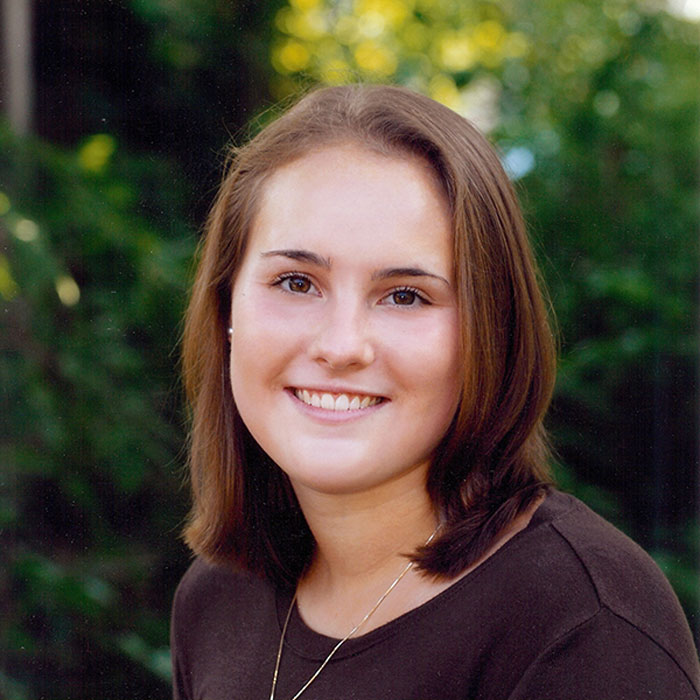Where are you from?
I’m from Concord, MA. I went to the University of Notre Dame for undergrad.
What were your academic interests in college?
I majored in biochemistry with a supplemental major in Spanish. I did research in a lab that uses biochemical, biophysical, and structural techniques to understand how T cell receptors recognize antigens. My project focused on the changes in internal protein motion that occur when the T cell binds to the major histocompatibility complex presenting an antigen from melanoma cells.
What is your research project about?
My project is trying to understand the effect of a disease mutation in the RNA binding protein hnRNPA2. In patients, the mutation causes a multi-tissue degenerative disease with elements of Amyotrophic Lateral Sclerosis and frontotemporal dementia. hnRNPA2 is a component of stress granules and mRNA transport granules which are formed by liquid-liquid phase separation, a phenomenon where proteins form a discrete phase from the surrounding solution, similar to oil droplets in water. My project uses nuclear magnetic resonance spectroscopy, biochemical techniques, and a novel disease model in C. elegans to study the effect of the mutation in hnRNPA2 on granule formation, interactions with other proteins, and neurodegeneration.
When and why did you become interested in brain science?
My grandmother died of Alzheimer’s disease when I was in high school, which is what initiated my interest in brain science and neurodegeneration in particular.
Why did you chose to come to Brown?
I came to Brown because of the collaborative environment fostered both in the Neuroscience Graduate Program and at the university level through initiatives like BIBS. I was also impressed at the commitment to training graduate students.
What do you like to do other than research?
Well I broke my ankle in February but before that I played rugby for the women’s team in Providence (but that’s not how I broke my ankle). Now I do more knitting and TV watching.
